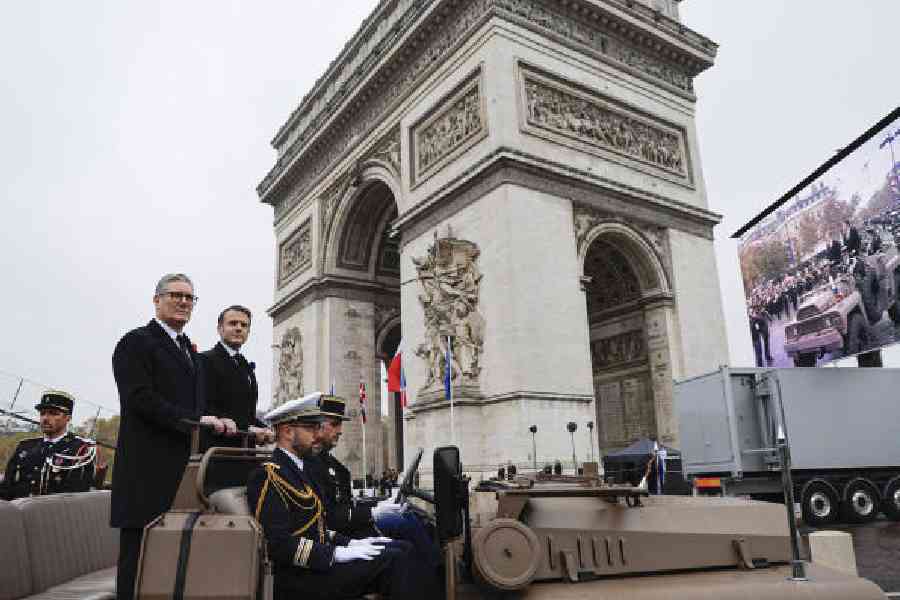With armed conflict again on their continent, many European leaders marked the end 106 years ago of World War I with warnings that liberty, so often taken as self-evident, should be cherished and defended.
British Prime Minister Keir Starmer and French President Emmanuel Macron, leaders both of nations with nuclear arsenals, were in Paris under the Arc de Triomphe, where dozens of wreaths were touched by a milky light and the eternal flame flickered to honour sacrifices of unknown French soldiers who perished in the first global conflict. That war killed almost 10 million soldiers.
“I am honoured to be in Paris to stand united with President Macron in tribute to the fallen of the First World War who made the ultimate sacrifice for the freedom we enjoy today,” Starmer said.
His defence secretary John Healey said the ceremonies amounted to a reminder that “we can never take the freedoms we enjoy in Europe for granted”. World War I pitted the armies of France, the globe-spanning British empire, Russia and the US against a German-led coalition that included the Austro-Hungarian and Ottoman empires.
Sometimes tens of thousands on a single day in northern France or in Flanders’ Fields just across the border in Belgium along a front line that barely moved in four years. Such carnage was remembered under Ypres’ Menin Gate in western Belgium, where some 55,000 names of soldiers whose remains were never found are engraved.
Yet the horrors of war stood in sharp contrast to the gratitude of liberty regained. “This was the dilemma facing the man whose names line these walls. Back in 1914, should they fight to maintain values and a way of life in which there was a place for everyone? Or should they accept a false peace dominated by dictatorship,” asked Benoit Mottrie, chairman of the Last Post Association.
AP











